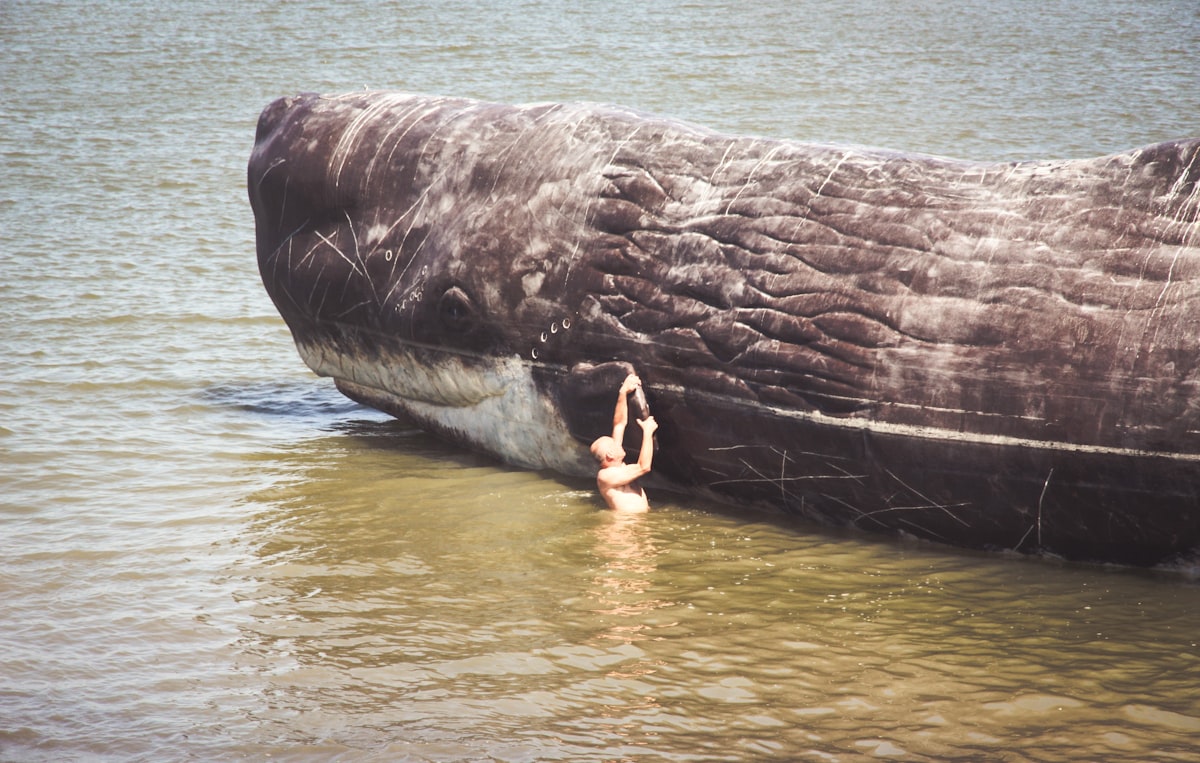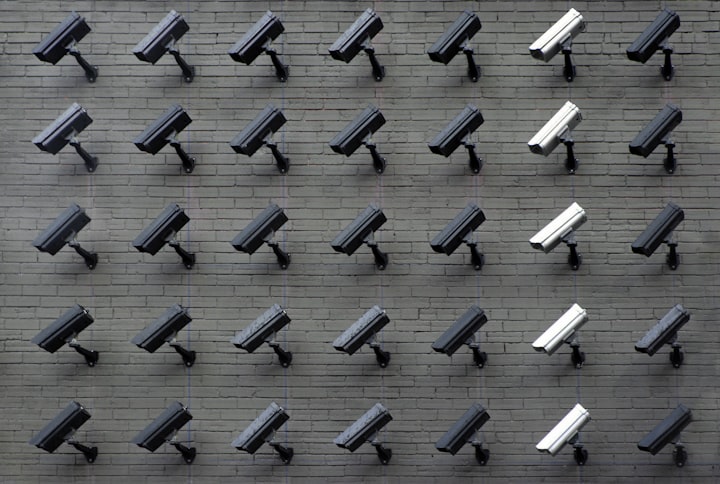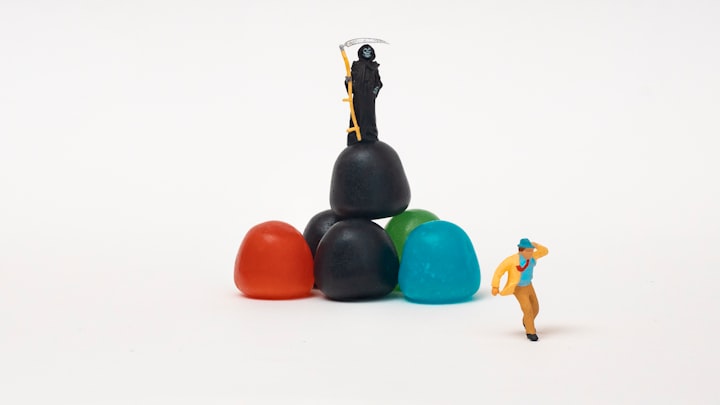Leviathan
Narrowing my eyes in the direction of elsewhere, I said: “It’s quite grim, this worldview of yours.”

by Will Lupens
Emerging from one of her customary bouts of self-absorbed silence, the Sibyl replied that the world on which we find ourselves is in fact the vast hulk of a dead whale, an enormous carcass sinking, slow as you like, through a fathomless murk of ocean deep; that this whale was already dead when we were born upon it; that, furthermore, the existence of a few habitable oases, the presence of this or that outcrop of blubbery carrion, does not change the fact that the ribs of one side have already been scavenged to the bone. That this corpse world will continue to sustain a certain number of fortunate but mindless crab-things long after it has settled on the ocean floor means nothing. The outcome is clear enough for anyone to see: a savage tearing apart of the biome, a precipitous descent into the purest barbarism, a ravenous consuming of life unto absolute death.
“It won’t be long now,” she said, a strangely contented smile playing across her intricately-lined face. “We’re quite near the bottom. You can feel it in the intensity of the cold, in the purity of the black. In an ever-increasing pressure on the sinuses. The war of every man against every man.”
“Hobbes,” I said, nodding with a silly satisfaction, as if the name itself somehow protected me. “‘Bellum omnium contra omnes’.”
She swatted my flimsy pedantry aside with an irritated wave of her hand. “There’s another who got it all wrong,” she spat. “False premises, spurious reasoning, piety. Utter confusion of origin and situation, completely backwards. Trust me, the state of nature was bliss compared to what we’ve wrought since.”
I admit I was disappointed. At our previous meeting she had let it be known that this next would be our last (she was set to be taken in by some son or other), and I’d spent the interval imagining she would draw from the well something for me alone, at the very least offer an indication of direction. I felt a little embarrassed, to be honest. To have come all this way, at my age, for a word of consolation. Narrowing my eyes in the direction of elsewhere, I said: “It’s quite grim, this worldview of yours.”
She shrugged. “It’s the world, all the same.”
We sat beside one another on the metal bench, cloaked in parallel silences. I pulled my overcoat tight, hunching my shoulders against the cold night air, its chill far too sharp to admit the swirl of moths that would otherwise have mobbed the artificial sun of the overhead flood. I could feel a bitter despondency seeping into my bones. I began to shiver, and realized that I’d let my wandering mind become trapped inside her bleak notion of things.
It was thus more from irritation than any genuine conviction that I eventually managed to raise the feeblest of objections. “It can’t be as dire as all that,” I said. “Surely there is time to set things right, still plenty of cause for optimism.”
She smiled her senescent smile, a scale model of the des olation she forecast, and said: “The universe, so I’m told, is chock full of worlds, too many to count. Think on those, if it’s comfort you’re looking for.”
I rose from the bench and, my hands shaking with cold, placed my offerings—a toasted ham and cheese sandwich, a shoulder of gin, a tattered pulp romance—on the spot where I’d been sitting. Touching hand to forehead by way of farewell, I hurried off in the direction of home, wondering all the while if the next morning would find me doing anything differently.
Will Lupens lives in Somerville, Massachusetts. His works has appeared in Salamander, minor literature[s] and Dream Fantasy International. He is the author of the novel Cares of a Wandering Boy, and the story collections Neighbor and The Institute of Solace.



